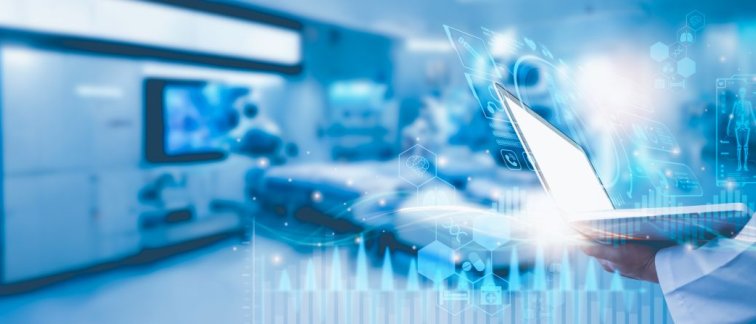Not a week goes by without promising new research on the application of artificial intelligence in healthcare. How far along are these techniques and what can we expect? – “The question is not so much what AI can do, but what we will do to make it practical in healthcare,” says Martijn Schut. He has been a professor of translational AI in laboratory medicine since last year. "You often have to take that translational literally in practice, as a translation," he says. He was trained as a computer scientist, but as a professor he spends at least half his time in the hospital facilitating that translational process. "Computer scientists and clinicians work in a pretty different world. They have to start working together interdisciplinarily in two-way communication."
Human-centered and cautious
AI in healthcare involves a great deal of caution. After all, it is about people's health. 'Decision support' is the term often dropped. Schut tells Trouw: "'Human-centered' is central to all these types of projects. AI never operates independently, always in collaboration with humans. At Amsterdam UMC, a trial is running with a prediction model for discharge from intensive care. That module scanned all kinds of data points to analyze which patients could be considered for discharge. A recommendation was generated and the medical team took that into the discussion."
The computer techniques must be human-centered not only for the patient, but for everyone who interacts with this technology. "It has to work for everyone," Schut said.
The article ‘The computer sees a lot about the patient, but how do we apply those insights?’
was published February 5, 2023. Read the full article in Dutch here.

